CORPORATE ACTION: Coca-Cola
Coca-Cola Launches Refill Program For Glass Bottles In El Paso
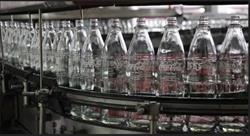 Coca-Cola Southwest Beverages has launched the “Refillable Glass Bottle Pilot Program” return and refill campaign for glass bottles in El Paso, Texas. The refill program covers 77 locations in El Paso but may be expanded to include the company’s whole territory, which covers Texas, Oklahoma, and parts of New Mexico and Arkansas. The program aims to “promote sustainability”, especially among area-based small businesses, such as restaurants and family-owned grocery stores.[Image Credit: © The Coca-Cola Company]
Coca-Cola Southwest Beverages has launched the “Refillable Glass Bottle Pilot Program” return and refill campaign for glass bottles in El Paso, Texas. The refill program covers 77 locations in El Paso but may be expanded to include the company’s whole territory, which covers Texas, Oklahoma, and parts of New Mexico and Arkansas. The program aims to “promote sustainability”, especially among area-based small businesses, such as restaurants and family-owned grocery stores.[Image Credit: © The Coca-Cola Company]
CORPORATE ACTION: Colgate
Colgate-Palmolive Launches Earth-Friendly Toothbrush In India
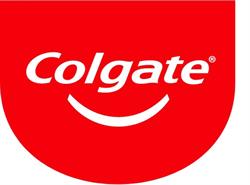
Colgate-Palmolive has launched the Colgate Keep toothbrush in India. The toothbrush comes with a metal handle and a replaceable plastic head. The company said the toothbrush has 80 percent less plastic compared with conventional toothbrushes, and comes in cardboard packaging made with 60 percent recycled material.[Image Credit: © Colgate-Palmolive Company]
SCG Chemicals Partners With Colgate-Palmolive Thailand To Develop Green Polymer Packaging
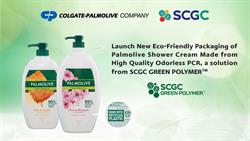
SCG Chemicals has worked with Colgate-Palmolive (Thailand) Limited to launch the SCGC Green Polymer brand of packaging for personal care products. The packaging is made from High Quality Odorless PCR Resin and is used for the first time in the Palmolive line of shower cream.[Image Credit: © SCG Chemicals Public Co Ltd and Colgate Palmolive]
CORPORATE ACTION: Henkel
Henkel Aims For 100% Recyclable Or Reusable Packaging By 2025
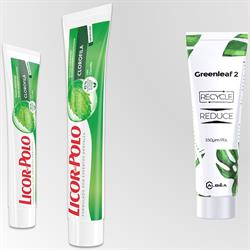
Henkel said it aims to make its packaging 100 percent designed for recycling or reuse by 2025. The company said it has committed to promoting sustainability and has built its strategy based on the concept of a circular economy. It also aims to include materials from sustainable sources and use a smart design to achieve a fully circular business model for plastics. Henkel said it plans to cut by 50 percent the amount of virgin plastics from fossil sources and increase its use of recycled plastics by more than 30 percent.[Image Credit: © Henkel AG & Co. KGaA]
Henkel Presents Adhesive Technologies With Environment-Friendly Packaging Applications
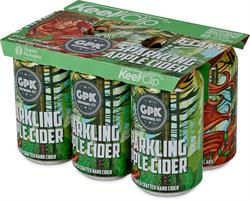 Henkel’s Adhesive Technologies have developed adhesives designed as alternatives to plastic packaging. These technologies include a glue-based alternative to shrink-wrap plastic used in holding boxes in place while on warehouse pallets. Henkel also developed the KeelClip, cardboard packaging designed to replace the plastic rings or shrink wrap used in holding multipacks of cans. The company has also developed a surface treatment technology capable of providing paper packaging qualities similar to those of plastic packaging.[Image Credit: © Henkel and Graphic Packaging International, LLC]
Henkel’s Adhesive Technologies have developed adhesives designed as alternatives to plastic packaging. These technologies include a glue-based alternative to shrink-wrap plastic used in holding boxes in place while on warehouse pallets. Henkel also developed the KeelClip, cardboard packaging designed to replace the plastic rings or shrink wrap used in holding multipacks of cans. The company has also developed a surface treatment technology capable of providing paper packaging qualities similar to those of plastic packaging.[Image Credit: © Henkel and Graphic Packaging International, LLC]
CORPORATE ACTION: Nestlé
SUEZ, Nestlé Assert Need For Fundamental Change In Packaging Recycling In UK
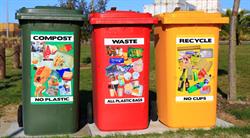 SUEZ and Nestlé executives are calling for a paradigm shift in recycling of packaging in the UK. SUEZ recycling and recovery’s external affairs director, Adam Read, said recycling alone cannot achieve the 2040 goal of cutting residual waste by half. Nestlé NPTC Confectionary head of packaging, Bruce Funnell, emphasized the need to discover “better material choices”.[Image Credit: © Nareeta Martin via Unsplash]
SUEZ and Nestlé executives are calling for a paradigm shift in recycling of packaging in the UK. SUEZ recycling and recovery’s external affairs director, Adam Read, said recycling alone cannot achieve the 2040 goal of cutting residual waste by half. Nestlé NPTC Confectionary head of packaging, Bruce Funnell, emphasized the need to discover “better material choices”.[Image Credit: © Nareeta Martin via Unsplash]
CORPORATE ACTION: Procter & Gamble
PureCycle Works With Cincinnati Bengals To Prepare Stadium Plastic Waste For Recycling
 PureCycle Technologies, Inc., has partnered with the Cincinnati Bengals football team to implement PureZero, a waste program aimed at managing plastic waste at stadiums and other entertainment venues. PureCycle uses a processing technology developed by Procter & Gamble to remove impurities from polypropylene plastic cups and food containers to make them suitable for recycling.[Image Credit: © PRNewswire]
PureCycle Technologies, Inc., has partnered with the Cincinnati Bengals football team to implement PureZero, a waste program aimed at managing plastic waste at stadiums and other entertainment venues. PureCycle uses a processing technology developed by Procter & Gamble to remove impurities from polypropylene plastic cups and food containers to make them suitable for recycling.[Image Credit: © PRNewswire]
CORPORATE ACTION: Unilever
HUL Launches TRANSFORM Plastics Challenge To Promote Sustainability Start-Ups In India
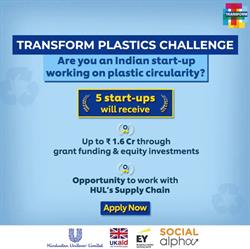
Hindustan Unilever Limited has announced the TRANSFORM Plastics Challenge, a program designed to promote technology start-ups working on plastic waste management and the circular economy. HUL is collaborating with the UK’s Foreign, Commonwealth and Development Office, EY, and Social Alpha. The program aims to identify start-ups working to create technology solutions for recycling plastic waste and sustainable packaging.[Image Credit: © Hindustan Unilever Limited ]
CORPORATE ACTION: Walmart
Walmart Collaborates With Procter & Gamble, TerraCycle To Offer In-Store Beauty Packaging Recycling
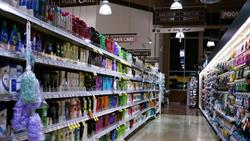 Walmart has partnered with Procter & Gamble and TerraCycle to launch the Walmart US Beauty Recycling Program for empty beauty product packaging in four states. The program will offer in-store recycling services at 25 stores in Pennsylvania, New Jersey, Oklahoma, and Arkansas. The stores will accept empty hair care, skincare and cosmetic packaging for recycling. It does not accept some items, such as aerosols, cardboard packaging and makeup wipes.[Image Credit: © Alanthebox CC0 via Wikimedia Commons]
Walmart has partnered with Procter & Gamble and TerraCycle to launch the Walmart US Beauty Recycling Program for empty beauty product packaging in four states. The program will offer in-store recycling services at 25 stores in Pennsylvania, New Jersey, Oklahoma, and Arkansas. The stores will accept empty hair care, skincare and cosmetic packaging for recycling. It does not accept some items, such as aerosols, cardboard packaging and makeup wipes.[Image Credit: © Alanthebox CC0 via Wikimedia Commons]
CORPORATE ACTION: Other
TerraCycle Launches Subscription-Based Waste-Pickup Service For New Jersey Households
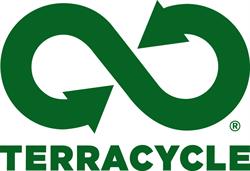 TerraCycle has launched TerraCycle Home, a subscription-based pickup service for more than 20 waste streams that local curbside recycling services do not accept. At present, the service is offered to residents in New Jersey and eastern Pennsylvania, with plans to expand nationwide. The service accepts materials, including cosmetic packaging, eyewear, and pet food packaging. Consumers can subscribe to the monthly or twice-monthly pickup service.[Image Credit: © TerraCycle]
TerraCycle has launched TerraCycle Home, a subscription-based pickup service for more than 20 waste streams that local curbside recycling services do not accept. At present, the service is offered to residents in New Jersey and eastern Pennsylvania, with plans to expand nationwide. The service accepts materials, including cosmetic packaging, eyewear, and pet food packaging. Consumers can subscribe to the monthly or twice-monthly pickup service.[Image Credit: © TerraCycle]
Migros Launches Fully Compostable Capsule-Less Single-Serve Coffee Ball
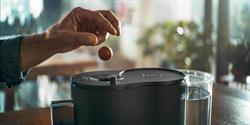 Migros has launched CoffeeB, a single-serve Coffee Ball that does not come in a plastic capsule. The product is designed to replace plastic coffee pods, which are responsible for 100,000 tons of plastic waste worldwide per year. Switzerland-based Migros said the Coffee Ball capsule-less coffee product is fully garden-compostable.[Image Credit: © Migros-Genossenschafts-Bund]
Migros has launched CoffeeB, a single-serve Coffee Ball that does not come in a plastic capsule. The product is designed to replace plastic coffee pods, which are responsible for 100,000 tons of plastic waste worldwide per year. Switzerland-based Migros said the Coffee Ball capsule-less coffee product is fully garden-compostable.[Image Credit: © Migros-Genossenschafts-Bund]
CAMPAIGNS, COMMITMENTS & NGOs
Asian Environmentalists Demand Government And Corporate Action Against Plastic Pollution
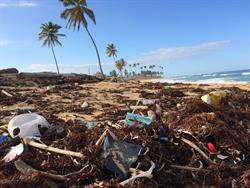
Asian environmental activists have called on governments and businesses to cut worldwide product of plastic to end all forms of plastic pollution. During the 7th International Marine Debris Conference in Busan, South Korea, the activists said more than 99 percent of plastics are manufactured from fossil fuels, which are among the biggest causes of climate change. They also condemned developed countries that export plastic waste to poor countries “under the guise of recycling”.[Image Credit: © Dustan Woodhouse on Unsplash]
Ellen MacArthur Foundation, WWF Gather Organizations Supporting Fight Against Plastic Pollution
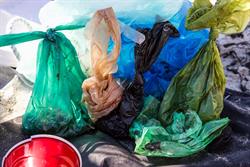 The Ellen MacArthur Foundation and The World Wildlife Fund have announced plans to launch a Business Coalition for a Global Plastics Treaty that will assemble companies and organizations supporting the fight against global plastic pollution. The organizations will come up with a common vision for promoting a circular economy and ensuring a voice for business in negotiating with governments. The endorsing organizations agree that the proposed treaty must support reduction in plastic production and use through a circular economy and the prevention and remediation of plastic leakage into the environment.[Image Credit: © Brian Yurasits on Unsplash]
The Ellen MacArthur Foundation and The World Wildlife Fund have announced plans to launch a Business Coalition for a Global Plastics Treaty that will assemble companies and organizations supporting the fight against global plastic pollution. The organizations will come up with a common vision for promoting a circular economy and ensuring a voice for business in negotiating with governments. The endorsing organizations agree that the proposed treaty must support reduction in plastic production and use through a circular economy and the prevention and remediation of plastic leakage into the environment.[Image Credit: © Brian Yurasits on Unsplash]
US Plastics Pact Launches Program To Bolster Partner Companies’ Reuse And Refill Systems
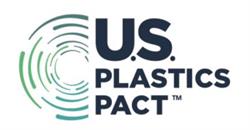 The U.S. Plastics Pact has launched its Reuse Catalyst program, a campaign aimed at helping expand the activities of companies that are operating or about to launch reuse or refill systems. The program will accept applications for its first round until October 20, 2022. Participating companies can avail themselves of “exposure and connections to sources” that are potential future partners by sharing insights on their reuse or refill systems. Also, the program seeks to promote reuse platforms across the country while gaining insight into factors that encourage consumers to use such systems.[Image Credit: © U.S. Plastics Pact]
The U.S. Plastics Pact has launched its Reuse Catalyst program, a campaign aimed at helping expand the activities of companies that are operating or about to launch reuse or refill systems. The program will accept applications for its first round until October 20, 2022. Participating companies can avail themselves of “exposure and connections to sources” that are potential future partners by sharing insights on their reuse or refill systems. Also, the program seeks to promote reuse platforms across the country while gaining insight into factors that encourage consumers to use such systems.[Image Credit: © U.S. Plastics Pact]
World Economic Forum Suggests Standards-Based Systems For Measuring Impact Of Reuse Systems
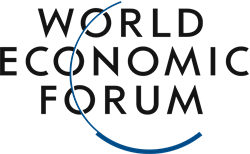 The World Economic Forum’s Consumer Beyond Waste initiative has proposed two systems of measurement to evaluate progress of reuse systems. At present, “measurement and reporting” remains a major obstacle to expanding “reuse models of consumption” because of a lack of “standardized and tested metrics” to monitor progress. CBW seeks to establish strong and standardized metrics to help companies moving to circular business models.[Image Credit: © World Economic Forum]
The World Economic Forum’s Consumer Beyond Waste initiative has proposed two systems of measurement to evaluate progress of reuse systems. At present, “measurement and reporting” remains a major obstacle to expanding “reuse models of consumption” because of a lack of “standardized and tested metrics” to monitor progress. CBW seeks to establish strong and standardized metrics to help companies moving to circular business models.[Image Credit: © World Economic Forum]
Industry Experts Call For Federal Rules On Post-Consumer Recycled Content
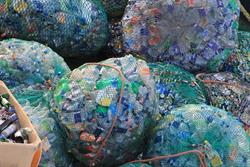 In the United States, some states are enacting laws that require post-consumer recycled content in plastic packaging. California, Washington State and New Jersey have adopted or have plans to adopt regulations with different PCR content requirements. Industry experts claim that states’ PCR regulations are getting ahead of market demands and recycling capacities. Also, market representatives are calling for federally mandated PCR rules to eliminate confusion likely to be caused by different state laws.[Image Credit: © Maurice Angres from Pixabay]
In the United States, some states are enacting laws that require post-consumer recycled content in plastic packaging. California, Washington State and New Jersey have adopted or have plans to adopt regulations with different PCR content requirements. Industry experts claim that states’ PCR regulations are getting ahead of market demands and recycling capacities. Also, market representatives are calling for federally mandated PCR rules to eliminate confusion likely to be caused by different state laws.[Image Credit: © Maurice Angres from Pixabay]
Alupro Launches Initiative To Promote Aerosol Recycling In UK
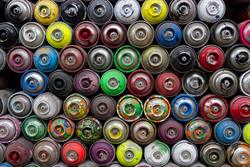 Alupro has launched an initiative aimed at promoting aerosol recycling in the UK. The aluminum packaging recycling group said the UK Aerosol Recycling Initiative seeks to ensure the “recyclability and viability” of metal aerosols in “post-extended producer responsibility” and “post-deposit return scheme landscape”. The organization also said the initiative will aim to inform the public about best practice recycling, set a baseline recycling rate and a roadmap to expand aerosol recycling, as well as secure long-term investment in recycling infrastructure.[Image Credit: © Aleksander Naug on Unsplash]
Alupro has launched an initiative aimed at promoting aerosol recycling in the UK. The aluminum packaging recycling group said the UK Aerosol Recycling Initiative seeks to ensure the “recyclability and viability” of metal aerosols in “post-extended producer responsibility” and “post-deposit return scheme landscape”. The organization also said the initiative will aim to inform the public about best practice recycling, set a baseline recycling rate and a roadmap to expand aerosol recycling, as well as secure long-term investment in recycling infrastructure.[Image Credit: © Aleksander Naug on Unsplash]
Developing Countries Need To Invest In Waste Management Systems To Help Address Plastic Pollution
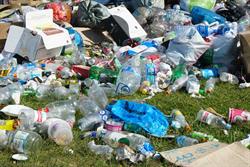 To address the global problem of plastic pollution, the world needs to reduce plastic waste production and to increase plastic circularity. Global demand for plastics is high and rising, driven by the need for packaging that offers effective barrier properties, and is lightweight, malleable and for which manufacturing makes economic sense. According to the United Nations Environment Assembly, developing countries should invest in modern waste management systems to prevent waste leakage. Also, companies should invest in new business models covering collection, classification, and recycling capacity aimed at increasing plastic circularity.[Image Credit: © Ariungoo Batzorig on Unsplash]
To address the global problem of plastic pollution, the world needs to reduce plastic waste production and to increase plastic circularity. Global demand for plastics is high and rising, driven by the need for packaging that offers effective barrier properties, and is lightweight, malleable and for which manufacturing makes economic sense. According to the United Nations Environment Assembly, developing countries should invest in modern waste management systems to prevent waste leakage. Also, companies should invest in new business models covering collection, classification, and recycling capacity aimed at increasing plastic circularity.[Image Credit: © Ariungoo Batzorig on Unsplash]
CONSUMER & PUBLIC OPINION
Spate Says Searches For Refillable Personal Care Products Are Increasing
 Online searches for refillable personal care products, such as deodorants and perfumes, have increased in the United States year-over-year. Data from Spate showed that searches for refillable deodorant increased 32 percent, while searches for refillable perfumes jumped 60.7 percent, with brands Mugler, Boucheron, and Chanel accounting for most of the increase. Also, data revealed that Dove is the most searched brand by people searching for “refillable deodorants”.[Image Credit: © PMV Chamara on Unsplash]
Online searches for refillable personal care products, such as deodorants and perfumes, have increased in the United States year-over-year. Data from Spate showed that searches for refillable deodorant increased 32 percent, while searches for refillable perfumes jumped 60.7 percent, with brands Mugler, Boucheron, and Chanel accounting for most of the increase. Also, data revealed that Dove is the most searched brand by people searching for “refillable deodorants”.[Image Credit: © PMV Chamara on Unsplash]
UK Consumers Throw Recyclable Items In Regular Garbage Bins
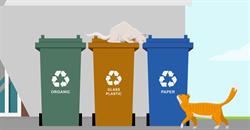 In the UK, 72% of respondents said they throw recyclable items into their regular trash bins. Results of Barratt Homes’ survey of 2,000 people across the country also revealed that more than half of the respondents admitted to putting non-recyclable items in the recycling bins. Also, many people make basic mistakes. For example, 32% of respondents mistake kitchen roll for being recyclable when it, in fact, cannot be recycled.[Image Credit: © Barratt Homes]
In the UK, 72% of respondents said they throw recyclable items into their regular trash bins. Results of Barratt Homes’ survey of 2,000 people across the country also revealed that more than half of the respondents admitted to putting non-recyclable items in the recycling bins. Also, many people make basic mistakes. For example, 32% of respondents mistake kitchen roll for being recyclable when it, in fact, cannot be recycled.[Image Credit: © Barratt Homes]
Large Majorities Of US Consumers, Young Adults Say Willing To Support Makers Of Sustainable Products With Their Money
 In the United States, 66 percent of consumers and 80 percent of young adults are willing to pay more for sustainable products. Details of the second “Business of Sustainability Index” report by GreenPrint revealed that 78 percent admitted they do not know how to identify environment-friendly companies. Also, 50 percent said “clear language on products is important”, while 46 percent put emphasis on confirmation by a third-party of independent sources.[Image Credit: © Noah Buscher via Unsplash]
In the United States, 66 percent of consumers and 80 percent of young adults are willing to pay more for sustainable products. Details of the second “Business of Sustainability Index” report by GreenPrint revealed that 78 percent admitted they do not know how to identify environment-friendly companies. Also, 50 percent said “clear language on products is important”, while 46 percent put emphasis on confirmation by a third-party of independent sources.[Image Credit: © Noah Buscher via Unsplash]
PACKAGING REDESIGNS
Mondi Launches Hug&Hold Paper-Based Packaging For PET Bottle Packs
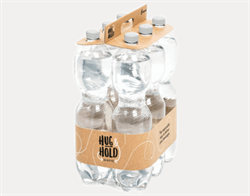
Mondi has launched Hug&Hold, recyclable, paper-based packaging for PET bottle bundle packs. The packaging and paper provider said Hug&Hold is composed of a kraft paper sleeve and a corrugated clip. The patent-pending sleeve is designed to wrap around the bottles; the clip holds the bottle necks. Mondi collaborated with packaging automation company Krones to ensure that Hug&Hold can work with Krones’ machines.[Image Credit: © Mondi]
POLICY, REGULATION & LEGAL
EU Adopts Regulation Covering Safe Use Of Recycled Plastic Packaging For Food Products
 The European Commission has adopted new rules that would allow the use of recycled plastics in packaging of food products. The new rules are aimed at expanding the “overall sustainability” of the food industry and helping achieve the objectives of the Circular Economy Action Plan. The regulation will enable the authorization of recycling processes for manufacture of recycled plastic packaging for use in the food industry.[Image Credit: © The European Commission]
The European Commission has adopted new rules that would allow the use of recycled plastics in packaging of food products. The new rules are aimed at expanding the “overall sustainability” of the food industry and helping achieve the objectives of the Circular Economy Action Plan. The regulation will enable the authorization of recycling processes for manufacture of recycled plastic packaging for use in the food industry.[Image Credit: © The European Commission]
INNOVATION & TECHNOLOGY
Cullen Launches Recyclable Fibre Bottle As Replacement For Single-Use Plastic Packaging
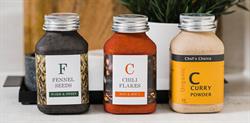 Cullen Packaging has launched the Fibre Bottle, a packaging designed for dry goods. The company said Fibre Bottle is made from 100% natural material, recycled cardboard and water, and is biodegradable and compostable. The product is designed to replace plastic packaging and is currently shelf-ready at commercial scale.[Image Credit: © Business Wire and Cullen Packaging]
Cullen Packaging has launched the Fibre Bottle, a packaging designed for dry goods. The company said Fibre Bottle is made from 100% natural material, recycled cardboard and water, and is biodegradable and compostable. The product is designed to replace plastic packaging and is currently shelf-ready at commercial scale.[Image Credit: © Business Wire and Cullen Packaging]
Blockchain Helps Push Toward Circular Economy
.jpg&width=250&height=219) Blockchain, a distributed ledger technology (DLT), can help in building a circular economy by “identifying and monitoring materials and components” across the supply chain to allow them to be reused, remanufactured, or otherwise recycled or composted. DLT can also be used in helping regenerate or heal nature as displayed by waste management company Suez’s use of blockchain to document the process of moving waste-water sludge to agricultural soil. Also, blockchain can help manufacturers in sourcing materials that are certified as recycled or remanufactured. The technology can also help inform consumers on the best way to repair or dispose of a product or its components.[Image Credit: © GuerrillaBuzz CryptoPR via Unsplash]
Blockchain, a distributed ledger technology (DLT), can help in building a circular economy by “identifying and monitoring materials and components” across the supply chain to allow them to be reused, remanufactured, or otherwise recycled or composted. DLT can also be used in helping regenerate or heal nature as displayed by waste management company Suez’s use of blockchain to document the process of moving waste-water sludge to agricultural soil. Also, blockchain can help manufacturers in sourcing materials that are certified as recycled or remanufactured. The technology can also help inform consumers on the best way to repair or dispose of a product or its components.[Image Credit: © GuerrillaBuzz CryptoPR via Unsplash]
Great Wrap Unveils Compostable Alternative To Petroleum-Based Clingfilm

Great Wrap has developed a compostable packaging designed to be an alternative to clingfilm. The Australian biomaterials company said the packaging is made from starch extracted from potato peels combined with other ingredients, such as cooking oil and cassava. Also, the company claims the transparent packaging comes with textural and performance qualities similar to those of petroleum-based plastic clingfilm.[Image Credit: © Great Wrap]
RESEARCH
UK Group Evaluates Compostable Packaging As Option For Managing Hard-To-Recycle Plastic Waste
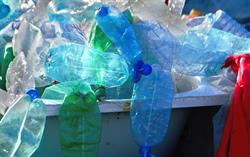 The Compostable Coalition UK will evaluate the viability of using compostable packaging as a means of dealing with single-use and hard-to-recycle plastics and waste. The 10-member coalition of representatives from industry, infrastructure and academia in the UK has received a $1.4 million fund from the UK Research and Innovation’s Smart Sustainable Plastic Packaging Challenge. The project will focus on flexible packaging, small plastic packaging and food operations that lack recycling capabilities.[Image Credit: © VIVIANE MONCONDUIT from Pixabay]
The Compostable Coalition UK will evaluate the viability of using compostable packaging as a means of dealing with single-use and hard-to-recycle plastics and waste. The 10-member coalition of representatives from industry, infrastructure and academia in the UK has received a $1.4 million fund from the UK Research and Innovation’s Smart Sustainable Plastic Packaging Challenge. The project will focus on flexible packaging, small plastic packaging and food operations that lack recycling capabilities.[Image Credit: © VIVIANE MONCONDUIT from Pixabay]
Copyright 2026 Business360, Inc.

